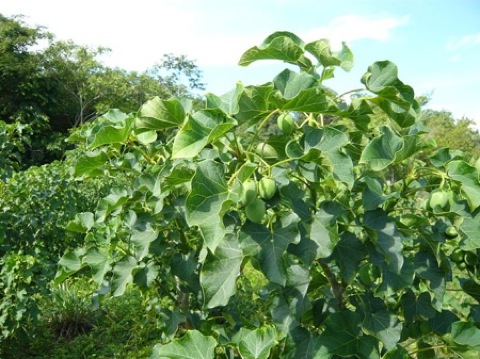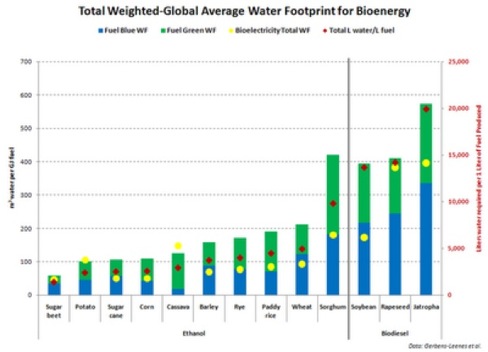It's Always Something
16 Jun, 2009 06:38 pm
I spend a lot of time thinking about the trade-offs involved with different energy options. Cheap petroleum has enabled numerous people a level of mobility that had never before been possible. Some of the downsides, though, are that we get air pollution, oil spills, and resource wars. And because of U.S. dependence on petroleum, we find ourselves increasingly at the mercy of regimes hostile to U.S. interests. However, we have been willing to live with those trade-offs. The same trade-offs hold true for renewable energy.
 |
There is no perfect solution, but there are those in which the trade-offs are more favorable. For a tropical country like Brazil, I think ethanol from sugarcane is a good solution. However, try to scale that up to fuel the world, and you start dealing with more difficult trade-offs. One of the options I think looks good longer-term is green diesel made from either hydrotreating/cracking various plant oils, or from gasifying biomass and then converting it via Fischer-Tropsch to diesel (as Choren is doing).
For the hydrocracking option, the specific plant oil (or animal fat) you use is going to involve more trade-offs. Take palm oil, for instance. It is a prolific producer of oil, to be sure. It has provided a new source of income for many tropical countries. But demand from developed countries has led to massive deforestation as some tropical countries rush to plant palm oil plantations.
Jatropha curcas, which I have written about previously, is an interesting option. The primary attraction is that it can reportedly grow in marginal soil, and it is drought tolerant. Presumably, this would imply that it doesn't use much water. Not so, according to a recently published paper in PNAS:
The water footprint of bioenergy
 |
In case you can't read that, the graph shows jatropha as the highest user of water per GJ of fuel produced. Many believe the world faces some very serious issues with availability of fresh water. In that case, an important trade-off will be the amount of water a energy crop uses.
The study doesn't describe their methodology in detail, so it is difficult for me to critique their result. I can say that other studies have shown that jatropha still produces oil under minimal water requirements:
Response of Jatropha curcas L. to water deficit: Yield, water use efficiency and oilseed characteristics
It may be that the best yields are produced when lots of water is supplied. But then there are locations that would be willing to trade lower oil yields for low water requirements. The point is that these sorts of trade-offs are going to be involved with every energy choice. As the title says, "It's always something." But that doesn't mean we don't have options.
As we turn increasingly to bioenergy in the future, it is critical that we make choices that minimize the negative side of the trade-offs. Unfortunately, history shows that the group benefiting from the positive side of the trade-off is not always the same group getting hit with the negative side. But for me, this is going to be an important consideration as I search for optimal bioenergy options.
Note: Incidentally, when I was writing this essay, I ran across a very informative source of jatropha information that I hadn't seen before. There are a lot of nice pictures there: Jatropha Cultivation.
Originally published on R-Squared Energy Blog
-
12/12/12
Peak Oil is Nonsense Because Theres Enough Gas to Last 250 Years.
-
05/09/12
Threat of Population Surge to "10 Billion" Espoused in London Theatre.
-
05/09/12
Current Commentary: Energy from Nuclear Fusion Realities, Prospects and Fantasies?
-
04/05/12
The Oil Industry's Deceitful Promise of American Energy Independence
-
10:00
Shaky Foundations for Offshore Wind Farms






